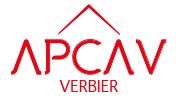
Each month, we analyse a current property-related topic with significant issues and potential changes. Today, the President of the APCAV, Brigitte Borel, takes up the pen to talk to you about the rental value, its function and its possible repeal. Enjoy your reading!
The current rental value system
In Switzerland, a property for own use is not only subject to wealth tax. In addition, there is income taxation, even if the property is not rented to third parties. This is the rental value system, which is part of Switzerland’s solidarity-based tax system.
The rental value system aims to create a balance between tenants and owners. Indeed, the latter enjoy a more favourable tax situation because they are entitled to deduct mortgage interest from their income, as well as maintenance costs that guarantee the maintenance of the value of their property, among other things. In order to achieve this balance, the rental value has been introduced as a notional income on owner-occupied housing, which is added to the taxable income of taxpayers. It applies to owners of both primary and secondary residences and corresponds to approximately 60-70% of the amount that an owner would receive if he or she were to rent out the property instead of using it for own use. Owners thus pay taxes on potential rental income. It should be noted that the calculation method differs greatly from one canton to another. In Valais, the value used is 60%.
Debates on rental value: towards a repeal?
The abolition of the highly controversial rental value has been debated for several years. It has been discussed since the 1990s and is back in the spotlight in 2017 with a bill drawn up by the Economic Committee of the Council of States (CER -E) which proposes to abolish the rental value for primary residences only. However, the deductions for energy saving and environmental protection measures were to be maintained, as well as the mortgage interest deduction for the purchase of a first home. Following a negative opinion from the cantons, the political process continued with several revisions of the project, which was finally referred to the ERC-EA Commission with a mandate to change the system completely. According to the latest developments, this would lead to a general abolition of the rental value, also for secondary residences. Passive interest could only be deducted if rents are actually received. A correspondingly adapted bill is expected to be presented by the summer of 2023, but its adoption remains uncertain and could still take some time.

Current tax deductions and taxes with real estate
Returning to the current system, it should be noted that although the rental value leads to a higher tax burden, owners also benefit from a number of tax deduction possibilities in connection with their property. In addition to mortgage interest and maintenance costs, they can also declare insurance premiums for their property, management fees and payments into the renovation fund. As an alternative to maintenance costs, it is possible to apply a flat-rate deduction.
The amount of tax that homeowners have to pay under the current system depends on the amount of mortgage interest and the amount of mortgage debt and income. The current model rewards higher indebtedness and therefore provides an incentive not to pay off mortgages.

What are the consequences of abolishing the rental value?
The effects of abolishing the rental value depend strongly on the level of mortgage interest rates. In the event of a change in the system, especially in the current context of rising interest rates, homeowners would be tempted to pay off a higher proportion of their debt because the tax incentives to take on debt would disappear.
The homeowners who would benefit most from a change in the system would therefore be those who have the least debt or who have paid off their mortgages the most, as well as those who invest little in the maintenance of their property. This would benefit many retirees for whom income declines in retirement while the rental value remains unchanged and often becomes a significant part of their income.
The effects will also depend on the age of the property. The older the property, the higher the maintenance costs, hence the interest in being able to deduct them under the current system. If this possibility were to disappear, the incentive to maintain the value of properties would become less, which could lead to an increase in the price differences between new and old properties.
Conclusion
In the light of these elements, it can be seen that the modalities of a change of system will have direct and indirect effects on individual property owners, on tax revenues and on the property market. The debate will probably continue to be lively before a consensus is reached.
Sources and other links (French) :
- Détermination de la valeur locative (vs.ch)
- Impôts: comment déclarer correctement votre bien immobilier | Credit Suisse (credit-suisse.com)
